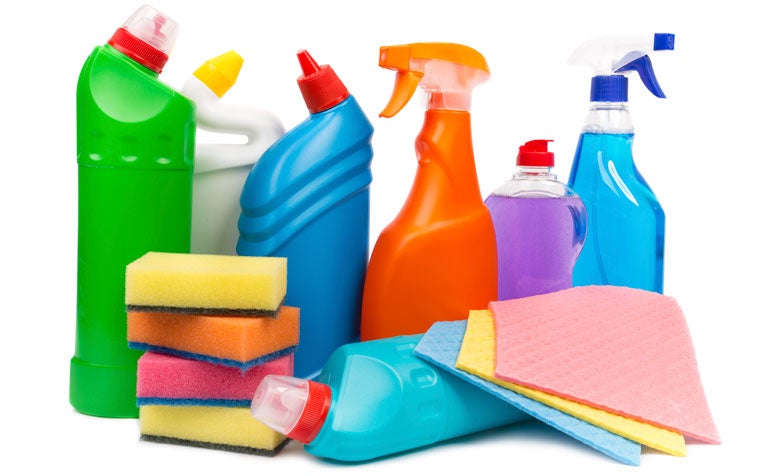
Household poisons can cause mild toxicity symptoms if improperly ingested.
Household poisons can cause minor symptoms such as nausea and abdominal discomfort. In extreme cases, they can damage vital organs such as the kidneys, liver, heart and lungs.
Liquids, powders, granules, sprays and aerosols can easily enter the body through the mouth, eyes, nose and skin, and poison you. Children are particularly at risk from these household poisons.
“Children are often attracted to the colourful containers of household cleaners and other harmful products. They can mistake them for something they can eat or drink,” says Dr Kenneth Tan Boon Kiat, Associate Consultant, Department of Emergency Medicine, Singapore General Hospital (SGH), a member of the SingHealth group.
Different types of accidental poisoning by common household items
Household products that can be poisonous if wrongfully ingested include the following:
- Cleaners: Dishwashing liquids, detergents, bleach, window cleaners
- Pesticides, used indoor and outdoor to kill cockroaches, ants, rats, lizards, termites and garden insects
- Metal polish, used to polish brass, copper or silver (e.g. jewellery cleaners)
- Disinfectants, used at home or for first aid
- Other products, such as paint thinner, rust remover, batteries, glue
“Medicines can also be toxic if they are consumed by the wrong person. For example, a heart medicine taken by a grandfather can be poisonous for his one-year-old grandchild,” says Dr Tan.
Certain products commonly found in the home can cause mild toxicity symptoms if improperly used (e.g. ingested). These include the following:
- Bath and beauty items, such as shampoo, soap, shaving cream, hair dyes, mouthwash, makeup, nail polish, creams and lotions, perfumes, colognes,
- Toiletries, such as soap, shampoo, shaving cream, toothpaste, deodorant
- Stationery items, such as ballpoint pen ink, erasers, crayons
- Other products, such as silica gel, mothballs, room deodoriser
Symptoms of poisoning by household items
What happens if you ingest any of these household poisons? Poisoning symptoms will vary depending on factors such as the type of household poison and its level of toxicity, the level of exposure, the route of exposure (skin, mouth, nose) and the age and weight of the patient.
Here are examples of potential poisoning symptoms:
When you eat or drink a poison:
- Nausea, vomiting, abdominal discomfort, choking
- Burns to the lips, mouth, throat, stomach and intestines if the substance is caustic (meaning able to burn tissues)
When you inhale a poison:
- Coughing, shortness of breath, wheezing
- Burns to the nose, throat or lungs if the substance is caustic
When you touch a poison:
- Rashes, itching and swelling on the skin
- Burns to the skin if the substance is caustic
When poisons get into the eyes:
- Blurred vision, redness, irritation and blindness
“Rashes, swelling of the eyes, mouth, throat, and shortness of breath can also occur when you have an allergy to a product,” says Dr Tan. “In extreme cases of accidental poisoning, household poisons can travel to key organs of the body and cause the patient to stop breathing, have fits or lose consciousness.”
Ref: R14
Contributed by


















 Get it on Google Play
Get it on Google Play